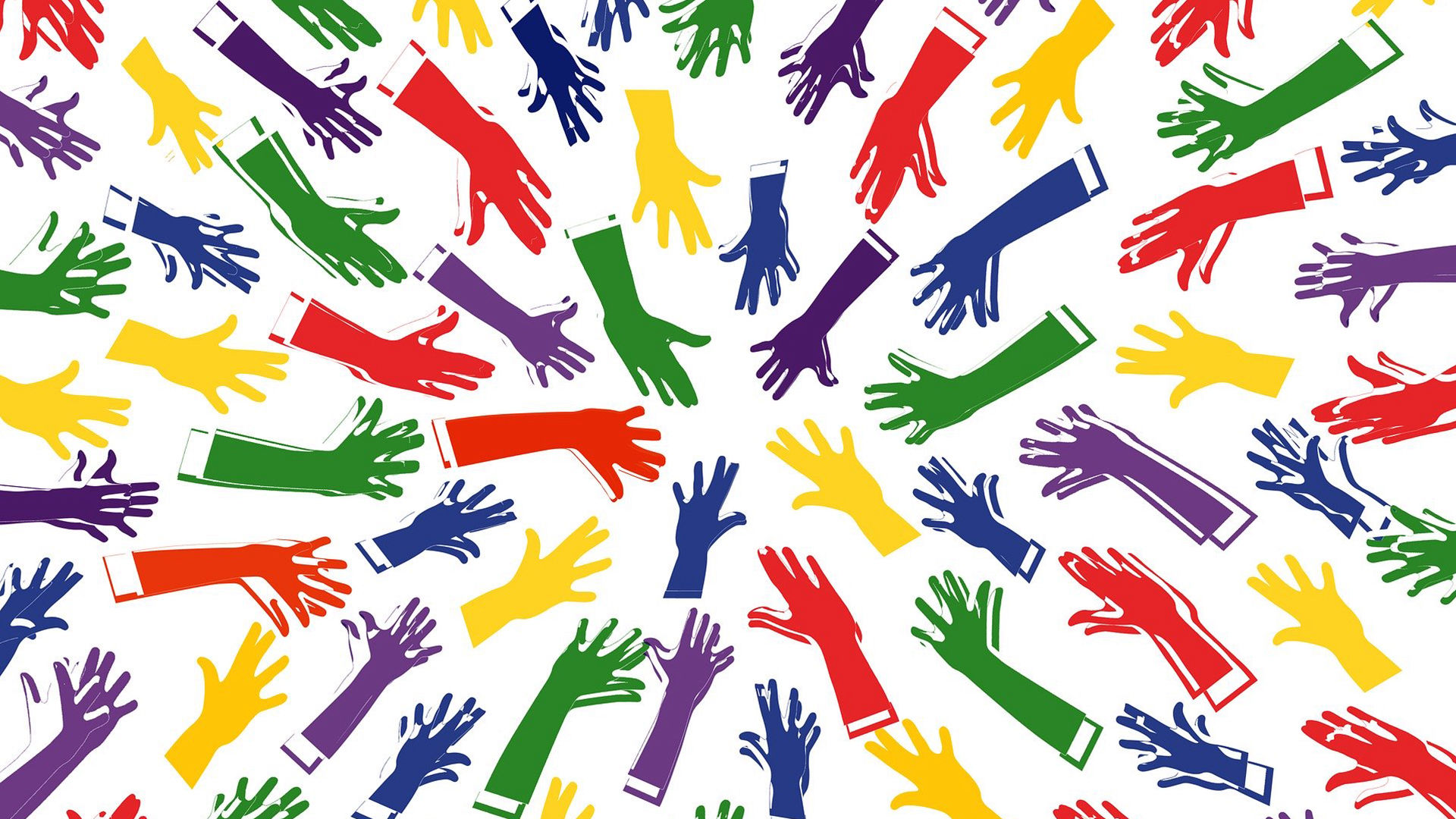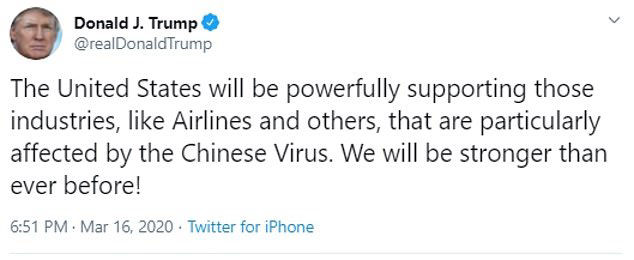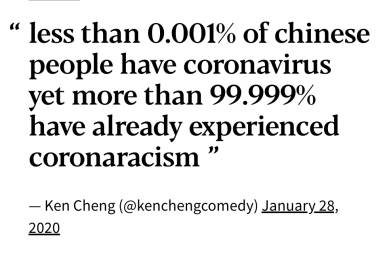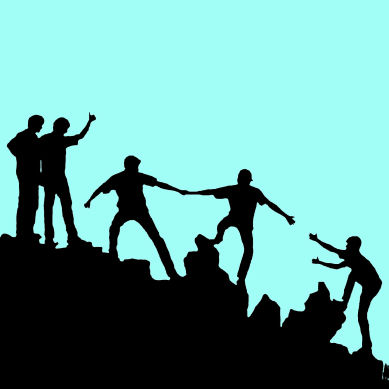
Rise of Racism and Xenomisia during the outbreak.

Published
2020


Published
2020
The number of COVID-19 infected people is on the rise globally. Countries are closing their borders, cities are shutting down, healthcare systems are under pressure, stores are not coping with the demand for food and other essential supplies. Many companies requested their employees to work from home, take unpaid leave while those who are self-employed or freelancers face uncertainty on when the next paycheque opportunity will arise.
It is fair to say we have now entered an unchartered territory and this is giving rise to worrying trends including an increase in discrimination, while at the same time diversity and inclusion discussions seem to have suddenly stopped as they are not seen as “business critical” at the moment.

Tweet by President Donald Trump
For the purpose of this article, it’s important to highlight the psychology of pandemics, an important but complicated issue, as it's very much connected to racism or blaming of particular groups of people, which has happened with every pandemic and serious outbreak.
Human beings are tribalistic in nature and we socialise to evolve in small groups. History shows us that some of the most infectious and deadly diseases that wiped out large groups of people were brought by foreigners, like the Europeans did when they started settling in Americas and brought influenza and smallpox, which wiped out the indigenous people. So, we as humans, we have, to some extent, a sort of built-in xenomisia.
There is no excuse for racism or any kind of discrimination, but it does happen, and it happens most during this sort of outbreaks.

Unfortunately, recently the world had to witness yet another act of ignorance and racism from Donald Trump calling COVID-19 “the Chinese Virus” ... There is no room for hate and the leaders must be very conscious of the language they use – THIS ACTS ARE NOT ACCEPTABLE!
We must stress the fact this sort of xenophobia is never limited to interactions between different cultural or racial groups but is also likely to happen within those groups too. A good example would be the SARS outbreak back in the early 2000s: survivors were even discriminated against and shunned, even though they had recovered. Even more daunting example, despite all their efforts and support during the outbreak, healthcare workers and hospital staff were shunned. There were reports of healthcare workers being told that their children were not welcome back into kindergarten because their parents worked with SARS patients in hospitals - this is only the tip of the iceberg when it comes to discrimination.
It's expected to see a reduction in discrimination as the infection become well established in different countries because once the virus is widespread it's going to become everyone's problem. The virus does NOT discriminate. In some ways that could be the only good thing that comes out of this interaction: that might serve to pull communities together to work together to deal with the problem. Government leaders must speak up to maintain public trust and discourage discriminatory behaviours. We all, together with national agencies must listen to the facts rather than fake information.
A pandemic is essentially a psychological phenomenon. Whereas psychology influences how people react and whether they follow the advice to contain the infection and crucial to the trust in their community leaders. And so our leaders need to be transparent, they need to maintain public trust, they need to offer advice about things like racism or xenophobia and must lead by example - to send out a consistent message that discrimination is not an acceptable or sane way of dealing with the problem
Healthy ways for leaders to help themselves and others:

1. Communicate the truth. Pranks and fake news are not healthy
Communication is the key. In these uncertain times, we must ensure our workforce feels informed and most importantly supported. Whether employees physically go to the office or work from home, it's important we inform our staff about the steps you are taking to ensure their health and safety is the top priority. This does not mean you need to splash a ridiculous amount of money on posters with all the facts you need to protect themselves! Yes, there are reports of promoted posts on LinkedIn of companies who charge $50/poster with exactly the same information you can download from the WHO website. Posters are great but save yourself money (and the planet!) and send the information electronically.
Most importantly it's imperative you communicate with your teams what implication the outbreak may have on the future of the company and their health. Many big companies are preparing for the worse and send information to everyone in advance about potential job losses. Businesses take unfortunate, but necessary steps to ensure all information is correct and aligned with international health organisations - fake news will create unnecessary panic and confusion!

2. Create virtual spaces for people to connect, network and continue social activities.
People around the world have been asked to stop non-essential contact with other people and avoid all unnecessary travel which is knows as social distancing. This is likely to increase isolation and cause depression and anxiety, especially in people that are more vulnerable or may have already been exposed to the types of discrimination we discussed above.
This is why establishing formal and informal ways to remain connected, to offer mutual support, is going to be key if we are all to get through these difficult times.
From a workplace perspective, leaders have a responsibility to ensure that individuals are not only given the tools to do their job remotely (whenever possible) but can also remain connected to one another and to the wider community, so that they can seek help if and when they need it.

3. Don't cut your Diversity, Equality and Inclusion (DEI) budgets
Many big and small companies will suffer financially from the outbreak - it's a fact no one can dispute. Historically, it's been reported that corporations cut their DEI programmes first when they think about cost-cutting measures. This usually comes from companies who consider DEI as a 'nice to have' or as separate from the core business operations. Progressive companies, perhaps, who are doing it right will not be thinking about cutting those as they realise DEI programmes can actually help them survive long-term.
Budget cuts are unavoidable for many, but we should not take away the basics from people who need it the most. Instead, executives and budget holders should take into consideration cutting some non-essential expenses like alcoholic-beverages, or travel budget. The current situation showed us that we don't need expensive dinners or travel across the world to have a face-to-face meeting - saving a lot of money and the environment at the same time!
It's imperative the company sticks with their beliefs and uplifts their values, especially in hardship. Creating a progressive and inclusive environment will not only allow the company to survive long-term but will also attract the top talent. It is worth to mention employees are no longer looking for perks; they aren't motivating when they look for a new job. Employee engagement and the company's culture will play a vital role and individuals will look back at times when the company supported its employees the most.

4. Support even if you cannot be the one who can save
Job losses are unavoidable for many companies. Some companies may even close down because they will not have the means to keep going. What's important is to show people alternative ways they can get support in this difficult time. We encourage in-house lawyers and HR to research and share information with their staff about available government funds, grants, and loans. Factual communication is the key to allow people to survive.
A tangible example of what you can do for those who are losing their job: if you do have an in-house counselling team and an Employee Assistance Programme (EAP) allow your ex-employees to use the service free of charge. Mental health support is crucial and will prevent the loss of life.
Most importantly, we encourage companies to allow their ex-employees to use the company's health care benefits which will allow them to pay their medical bills. In many countries in Europe, health care is free of charge but across the USA it isn't - the most vulnerable are at risk of being denied health care services at the moment they need it the most.
Unfortunately, we will not always be able to support everyone, but we can do everything in our power to direct people to the right place where they will receive much-needed support.

5. Be conscious of your biases and check your privilege
People around the world have been asked to stop non-essential contact with other people and avoid all unnecessary travel which is knows as social distancing. This is likely to increase isolation and cause depression and anxiety, especially in people that are more vulnerable or may have already been exposed to the types of discrimination we discussed above.
This is why establishing formal and informal ways to remain connected, to offer mutual support, is going to be key if we are all to get through these difficult times.
From a workplace perspective, leaders have a responsibility to ensure that individuals are not only given the tools to do their job remotely (whenever possible) but can also remain connected to one another and to the wider community, so that they can seek help if and when they need it.
News, Events, Campaigns, and Life Changing Content!